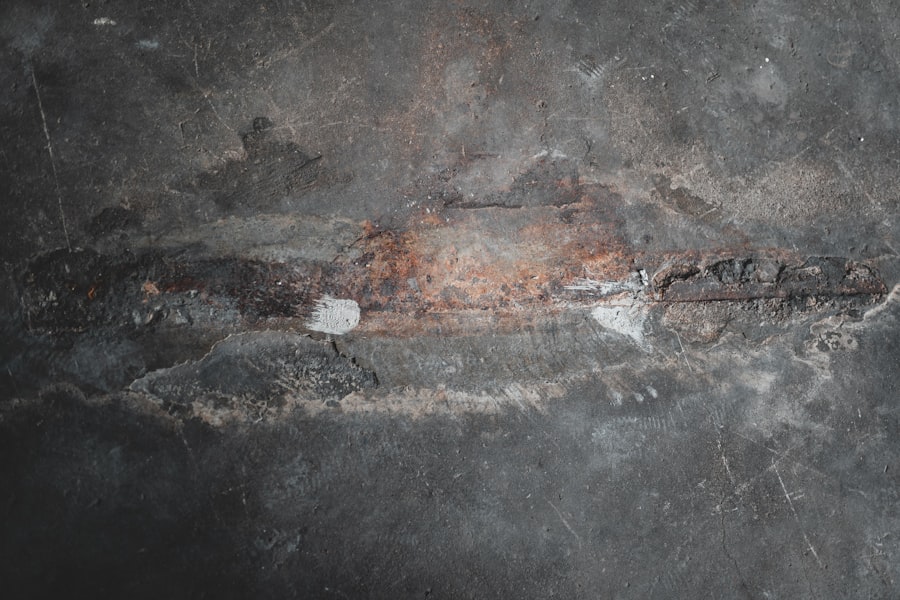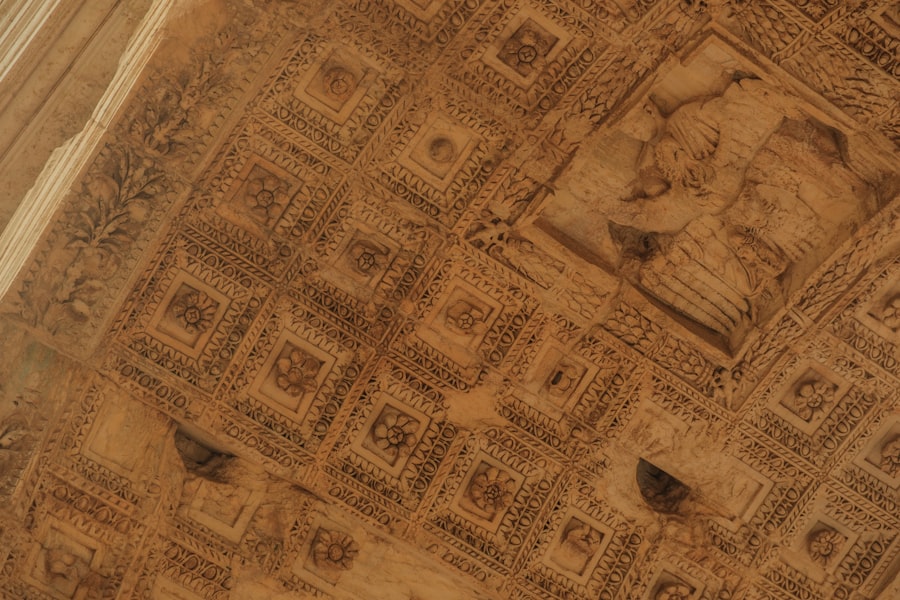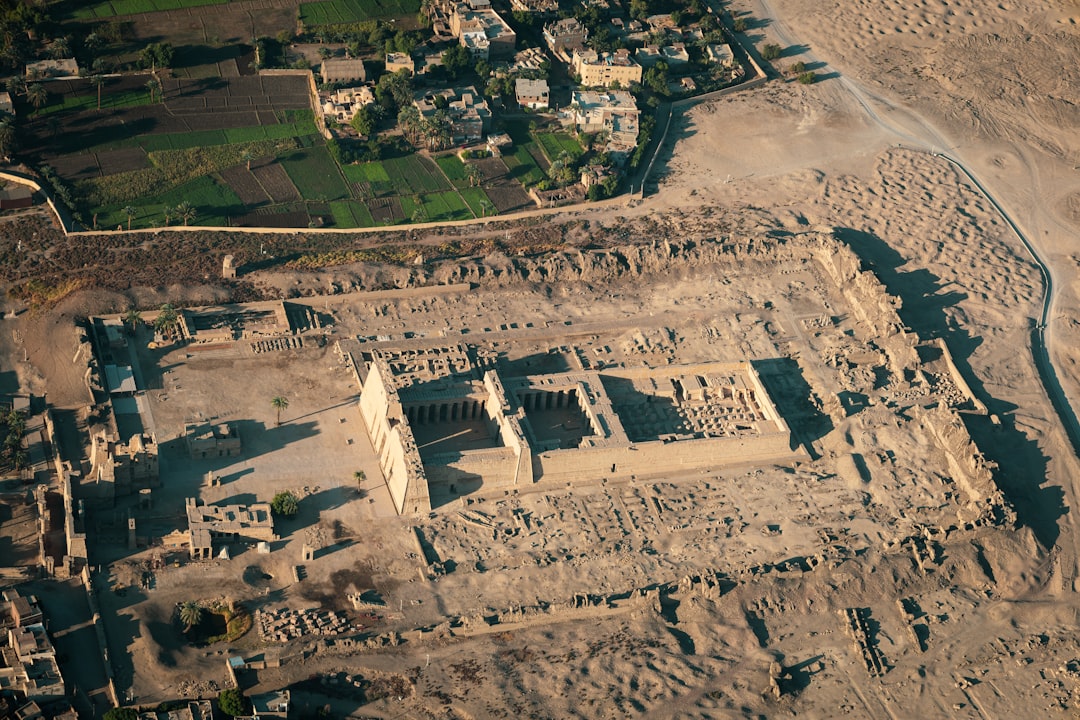The rich tapestry of Egypt’s history is woven with tales of pharaohs, monumental architecture, and a civilization that has captivated the world for millennia. However, beneath the surface of this storied past lies a complex narrative involving the concealment of archaeological findings. The practice of withholding information about significant discoveries has raised questions about transparency, accountability, and the ethical responsibilities of those in power.
As Egypt continues to be a focal point for archaeological research, understanding the implications of such concealment becomes crucial not only for the nation itself but also for the global community that seeks to comprehend humanity’s shared heritage. The concealment of archaeological findings in Egypt is not merely a matter of academic interest; it has profound implications for cultural heritage and historical understanding. The artifacts and sites unearthed in this ancient land hold keys to understanding human civilization’s evolution.
When these findings are hidden or misrepresented, it not only deprives scholars and historians of valuable insights but also robs the public of a deeper connection to their past. This article will explore the history of Egypt’s archaeological discoveries, the role of the government in research, instances of concealment, and the broader impact on archaeology and society.
Key Takeaways
- Egypt has a rich history of archaeological discoveries that are sometimes concealed by the government.
- The Egyptian government plays a significant role in controlling access to and information about archaeological research.
- Concealment of findings has led to public controversy and international criticism.
- Efforts are underway to increase transparency and accountability in Egypt’s archaeological practices.
- Concealing archaeological data impacts global understanding of history and raises legal and ethical concerns.
History of Egypt’s Archaeological Discoveries
Egypt’s archaeological history is as ancient as the civilization itself, with significant discoveries dating back to the 19th century. The modern era of archaeology in Egypt began with the work of figures such as Jean-François Champollion, who deciphered hieroglyphics, and Howard Carter, who famously uncovered the tomb of Tutankhamun in 1922. These discoveries not only ignited global fascination with ancient Egypt but also set the stage for subsequent excavations that would reveal countless artifacts and monuments.
Each find contributed to a growing understanding of Egyptian culture, religion, and daily life. However, the history of these discoveries is not without its challenges. The political landscape in Egypt has often influenced archaeological endeavors, with various regimes prioritizing certain findings over others based on nationalistic or ideological motives.
This has led to a selective narrative surrounding Egypt’s past, where some artifacts are celebrated while others remain obscured. The interplay between archaeology and politics has created a complex environment where the true scope of Egypt’s historical treasures may never be fully realized.
The Role of the Egyptian Government in Archaeological Research

The Egyptian government plays a pivotal role in shaping the landscape of archaeological research within its borders. The Ministry of Antiquities, established in 2014, oversees all archaeological activities and is responsible for protecting Egypt’s cultural heritage. While this governmental body aims to promote tourism and preserve historical sites, it also wields significant power over what information is disseminated to the public and the international community.
This control can lead to a situation where findings are selectively reported or even concealed altogether. Government involvement in archaeology can be a double-edged sword. On one hand, it can facilitate funding and resources for important excavations; on the other hand, it can stifle academic freedom and transparency.
Researchers often find themselves navigating a bureaucratic maze when seeking permission to conduct studies or publish their findings. This dynamic raises concerns about whether the government prioritizes national pride over scholarly integrity, potentially leading to a distorted understanding of Egypt’s archaeological record.
Instances of Concealment of Archaeological Findings
| Year | Country | Number of Instances | Type of Concealment | Reason for Concealment | Outcome |
|---|---|---|---|---|---|
| 2018 | Italy | 12 | Illegal Excavation and Hoarding | Black Market Sale | Recovered and Returned to Museums |
| 2019 | Egypt | 8 | Concealment in Private Collections | Preservation from Looting | Confiscated by Authorities |
| 2020 | Mexico | 15 | Hidden in Construction Sites | Avoid Government Seizure | Sites Excavated by Archaeologists |
| 2021 | Greece | 5 | Underground Storage | Protection from War Damage | Artifacts Preserved and Displayed |
| 2022 | China | 10 | Concealed in Private Homes | Family Heritage Protection | Negotiated Return to Museums |
Numerous instances have emerged where significant archaeological findings in Egypt have been concealed or downplayed by authorities. One notable example occurred in 2018 when a team of archaeologists announced the discovery of a vast network of ancient tombs near Luxor. While initial reports generated excitement within the academic community, subsequent statements from government officials downplayed the significance of these finds, leading to speculation about why such important discoveries were not fully publicized.
Another instance involved the discovery of a large cache of artifacts in Saqqara, which included mummies and funerary items dating back thousands of years. Although these findings were eventually revealed to the public, there were delays and inconsistencies in reporting that raised eyebrows among scholars. Such instances highlight a pattern where significant discoveries are either overshadowed by political agendas or strategically released to coincide with tourism campaigns, rather than being shared transparently with the global community.
Impact of Concealment on the Field of Archaeology
The concealment of archaeological findings has far-reaching consequences for the field itself. When discoveries are withheld from public view or scholarly discourse, it hampers collaborative research efforts and stifles innovation within archaeology. Scholars rely on access to comprehensive data to build upon existing knowledge; when key pieces are missing from the puzzle, it can lead to incomplete or inaccurate interpretations of history.
Moreover, concealment can foster an environment of mistrust between researchers and governmental authorities. Archaeologists may become hesitant to engage in projects within Egypt if they fear that their findings will be suppressed or manipulated for political purposes. This reluctance can ultimately hinder progress in understanding Egypt’s rich past and limit opportunities for international collaboration that could benefit both local scholars and global audiences.
Public Outcry and Controversy Surrounding Concealment

The issue of concealed archaeological findings has sparked public outcry and controversy both within Egypt and beyond its borders. Activists, scholars, and concerned citizens have voiced their frustrations over what they perceive as an erosion of cultural heritage due to governmental secrecy. Social media platforms have become a battleground for discussions about transparency in archaeology, with many calling for greater accountability from authorities.
In addition to grassroots movements, international organizations have also weighed in on the debate. UNESCO and other cultural heritage advocates have emphasized the importance of preserving historical artifacts for future generations while promoting open access to archaeological research. The tension between national pride and global heritage continues to fuel discussions about how best to balance these competing interests in a way that honors Egypt’s past while fostering international collaboration.
International Response to Egypt’s Concealment of Archaeological Findings
The international response to Egypt’s concealment of archaeological findings has been varied, reflecting a complex interplay between diplomacy, cultural heritage advocacy, and academic interests. Some countries have expressed concern over the lack of transparency in Egyptian archaeology, urging the government to adopt more open practices that would allow for collaborative research efforts. These calls often come from scholars who believe that sharing knowledge is essential for advancing understanding across borders.
Conversely, there are those who argue that national sovereignty should take precedence when it comes to cultural heritage management. Some governments maintain that Egypt has the right to control how its archaeological findings are presented and interpreted, viewing external pressure as an infringement on their autonomy. This dichotomy highlights the challenges faced by international organizations seeking to promote best practices while respecting local governance structures.
Efforts to Promote Transparency and Accountability in Archaeological Research
In response to growing concerns about concealment, various initiatives have emerged aimed at promoting transparency and accountability in archaeological research within Egypt. Collaborative projects between Egyptian institutions and international universities have sought to establish frameworks for open dialogue and shared knowledge. These partnerships often emphasize ethical practices in archaeology while advocating for greater public access to findings.
Additionally, advocacy groups have begun to push for legislative reforms that would enhance oversight of archaeological activities in Egypt. By establishing clearer guidelines for reporting discoveries and ensuring that researchers have access to necessary resources without fear of reprisal, these efforts aim to create an environment conducive to open inquiry. Such initiatives represent a hopeful step toward fostering a culture of transparency that honors both Egypt’s rich heritage and the global community’s desire for knowledge.
Legal and Ethical Implications of Concealing Archaeological Findings
The legal and ethical implications surrounding the concealment of archaeological findings are profound and multifaceted. Ethically, archaeologists are bound by principles that prioritize the dissemination of knowledge and respect for cultural heritage. When findings are concealed, it raises questions about professional integrity and accountability within the field.
Scholars must grapple with their responsibilities not only to their research but also to the communities whose histories they seek to illuminate. Legally, there are frameworks in place designed to protect cultural heritage; however, enforcement can be inconsistent. International treaties such as the UNESCO Convention on the Means of Prohibiting and Preventing the Illicit Import, Export, and Transfer of Ownership of Cultural Property emphasize the importance of transparency in managing archaeological resources.
When governments fail to adhere to these principles by concealing findings, they risk undermining their own legal obligations while jeopardizing their cultural heritage.
Future of Archaeological Research in Egypt
The future of archaeological research in Egypt hinges on several factors, including governmental policies, international collaboration, and public engagement with cultural heritage issues. As awareness grows regarding the importance of transparency in archaeology, there is potential for positive change within Egypt’s research landscape. Increased collaboration between local scholars and international institutions could pave the way for more comprehensive studies that honor both national pride and global heritage.
Moreover, as technology continues to advance, new methods for documenting and sharing archaeological findings may emerge. Digital platforms can facilitate greater access to information while allowing researchers from around the world to contribute their expertise without geographical constraints.
Implications of Government Concealment on Egypt’s Cultural Heritage and Global Understanding of History
The concealment of archaeological findings by the Egyptian government poses significant challenges not only for local scholars but also for humanity’s collective understanding of history.
The implications extend beyond academia; they touch upon issues of identity, pride, and shared human experience.
Moving forward, it is essential for stakeholders—governments, researchers, activists—to engage in meaningful dialogue about how best to navigate these complexities while honoring both national interests and global heritage concerns. By fostering an environment that values transparency and collaboration, Egypt can reclaim its narrative as a leader in archaeological research while enriching our collective understanding of history for generations to come.
The topic of archaeological cover-ups by the Egyptian government has garnered significant attention in recent years, raising questions about the preservation of historical artifacts and the transparency of archaeological practices. For a deeper understanding of this issue, you can read the article on the subject at XFile Findings, which explores various instances and implications of such cover-ups in Egypt’s rich archaeological landscape.
WATCH THIS! The Sphinx’s Secret Chamber: Why Egypt’s Government Forbids Scanning the Hall of Records
FAQs
What is the Egyptian government archaeological cover-up?
The term “Egyptian government archaeological cover-up” refers to allegations or claims that the Egyptian authorities have concealed or suppressed information related to archaeological discoveries in Egypt. These claims often suggest that certain findings are hidden from the public or international scholars for political, religious, or cultural reasons.
Are there verified instances of archaeological cover-ups by the Egyptian government?
There is no widely verified or officially confirmed evidence of systematic archaeological cover-ups by the Egyptian government. While some researchers and conspiracy theorists claim suppression of information, mainstream Egyptologists and archaeologists generally rely on peer-reviewed studies and official reports.
Why would the Egyptian government hide archaeological discoveries?
Speculated reasons for hiding archaeological findings include protecting national heritage, controlling tourism narratives, avoiding political or religious controversies, or preventing looting and illegal trade. However, these remain speculative without concrete proof.
How does the Egyptian government manage archaeological sites and discoveries?
The Egyptian Ministry of Tourism and Antiquities oversees archaeological sites and discoveries. They regulate excavations, preservation, and public access, often collaborating with international teams. The government aims to protect Egypt’s cultural heritage while promoting tourism.
Can foreign archaeologists work in Egypt?
Yes, foreign archaeologists can work in Egypt but must obtain permits from the Egyptian Ministry of Tourism and Antiquities. Collaborations are common, and findings are typically published in academic journals or official reports.
Where can I find reliable information about Egyptian archaeological discoveries?
Reliable information can be found through academic journals, official publications from the Egyptian Ministry of Tourism and Antiquities, reputable museums, and established archaeological institutions. Peer-reviewed research and official announcements are the most trustworthy sources.
Is there transparency in Egypt’s archaeological research?
Egyptian archaeological research is generally transparent within the academic community, with many discoveries published and shared internationally. However, some delays in public announcements can occur due to conservation efforts or verification processes.
How can the public learn about new archaeological findings in Egypt?
New findings are often announced through press releases by the Egyptian Ministry of Tourism and Antiquities, academic conferences, museum exhibitions, and reputable news outlets specializing in archaeology and history.
